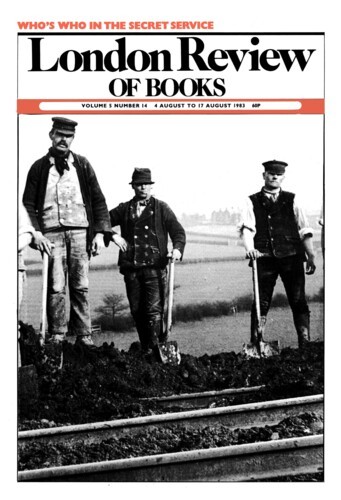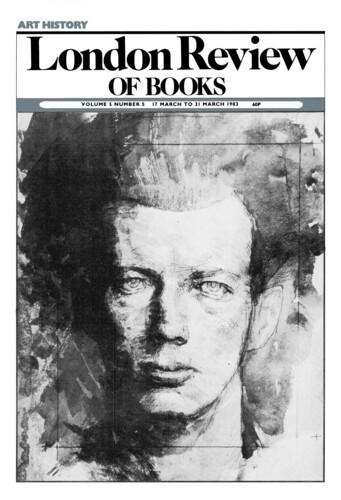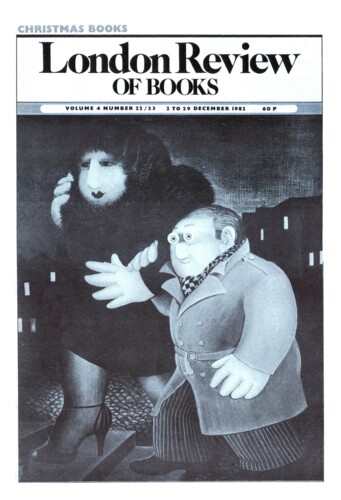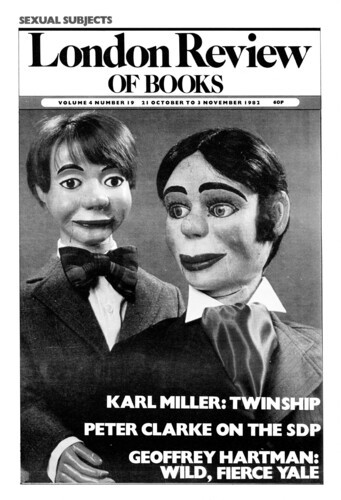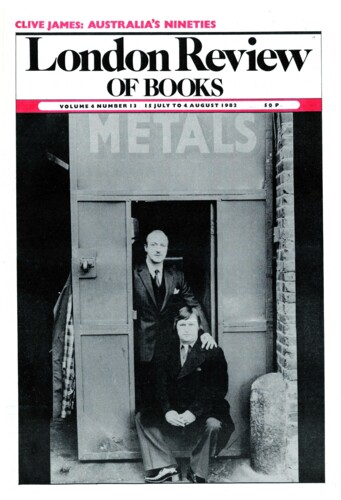Homely Virtues
David Cannadine, 4 August 1983
It is almost impossible to say anything completely correct about London; and it is equally difficult to say anything entirely erroneous. Whatever is written about a town so vast and varied, whether by city residents, provincial visitors or foreign observers, is likely to be at least and at best partially valid, which may explain why the literature on London is so lush. By the late 18th century, it was the largest city in the world, unique not only in the number of its inhabitants, but also in the range of its functions. Pace Dr Johnson, there was not in London all that life could afford: but it provided more opportunities for living and buying than all provincial English towns combined. Unfailingly attractive, and inexorably centripetal, London dominated England to an extent not rivalled by any other capital in any other country, drawing to itself the crown, parliament, government, the law, commerce, finance, fashion and culture, thereby concentrating in one swollen metropolis all those diverse urban functions which, in the United States, were divided up between Boston, New York, Philadelphia and Washington, and in France were shared by Paris, Versailles, Lyons, Marseilles and Bordeaux. So, as Henry James explained, ‘one has not the alternative of speaking of London as a whole, for the simple reason that there is no whole of it … Rather, it is a collection of many wholes, and of which of them is one to speak?’
